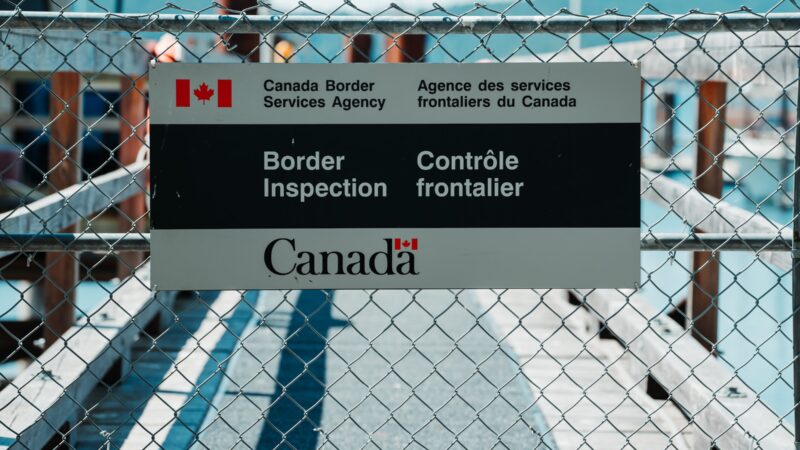2020 was awful and most people would agree that they never want to experience that year’s events ever again. For Rishi Sunak, though, it was the highlight of his career as Chancellor of the Exchequer.
He was smooth and slick during those COVID press conferences and he just presided over the furlough scheme that ensured people could live off government money comfortably whilst the nation was locked down. Sunak quickly became regarded as future leadership material and those must have been the glory days of his career. 2020 was a nightmare for ‘ordinary’ people, but for Sunak, it was the start of a promising future.
But a week is a long time in politics. Things have quickly changed for this Tory hopeful; he stabbed Boris in the back recently and put himself forward to replace his former boss as Prime Minister. In fact, it is somewhat laughable that Sunak claims he would ‘govern like Thatcher.’ But that is because many of us who remember his time as Chancellor were not so fooled by the way the media portrayed his handling of the Government’s response to COVID. The price of lockdown is becoming all too clear now, and Sunak should be remembered as a Chancellor who was worse than Gordon Brown.
This comparison may not seem fair to some readers. Brown was Chancellor during an economic boom, and he occupied the role for ten years. Yet Brown also made terrible decisions that failed to prepare us for 2008’s events like selling our gold, failing to build enough homes, and ruining the UK’s pension system. As Tejvan Pettinger explained for Economics Help, the last Labour government made the mistake of running a budget deficit of 3 per cent towards the end of the 1997-2007 boom under Blair. If Labour had reduced public debt further, this would have given them more room for manoeuvre during the 2008-12 financial crisis.
In the Conservative Party, many Tory members and MPs make the mistake of thinking the 2008 recession was caused by Labour’s ‘reckless borrowing.’ Though it was an argument I supported during my early days of political activism, Brown did nothing in hindsight to cause the global housing collapse; that was caused by the irresponsible housing policy of the Clinton administration, and the consequences of subprime borrowing spread throughout the rest of the world as the global economy is hugely interconnected.
But did the ‘Conservative’ Party’s economic policies help cushion the blow of the Great Recession? Pettinger’s piece explains how borrowing levels actually got worse once the Tories gained power in 2010 onwards. That hardly sounds fiscally conservative, does it? View Pettinger’s article here if you do not believe me.
However, Sunak’s record no doubt makes Brown blush. Government borrowing during the 2020/21 fiscal year was predicted to hit around 400 billion pounds, the equivalent of between 17-20 per cent GDP, well above its 10 per cent peak at the height of the global financial crisis (which was when Brown was Prime Minister).
Of course, Sunak would argue his decisions were necessary to finance Britain’s lockdown during a global pandemic. Nonetheless, John Hopkins University found that global lockdowns failed to prevent the spread of COVID and recommended that they should not be used as an instrument to tackle pandemics in the future. Even The Daily Telegraph was reporting in August 2020 that lockdown itself killed more people than COVID. With stories now surfacing of children who failed to receive support from social services during lockdown, and people having missed cancer appointments in 2020-21, it is apparent that locking down the country, and the world, was a deadly, self-inflicted mistake.
Sweden and Florida are two useful case studies for parts of the world that did not lock themselves down and still tackled the spread of COVID. Sweden’s COVID death rate currently stands at 19,144, and though its population is smaller than the UK’s, which locked down hard, they were praised for not locking down by mainstream outlets like Germany’s DW, despite being a nation that is 88 per cent urbanised, but then again Britain’s urbanisation numbers are very similar. Sweden’s leading epidemiologist, Anders Tagnell, argued his country’s approach to the coronavirus should be based on evidence, and there was none to prove that lockdowns were working. That we will come to later.
Florida’s infection levels, meanwhile, were no different to California’s, which locked down hard, and now the state has been ranked as one of the best when it came to handling the pandemic, according to The Committee To Unleash Prosperity. In fact, Florida’s Governor, Ron DeSantis, recently said his state’s economy is experiencing a record surplus. This shows Sunak and Boris did not have to fund an economically catastrophic lockdown to tackle the coronavirus; they chose to go down this path.
In Brown’s defence, he had no control over America’s subprime housing bubble exploding, which wrecked the former Labour Chancellor’s budget plans, though he should have been more financially prudent in anticipation of a crash. That is his only mistake.
And now, Britain is literally paying the price for Sunak’s record borrowing. Sure, the unemployment rate currently stands at 3.8 per cent, one of the lowest rates since 1974, but that does not help those on low incomes in the face of surging inflation and high interest rates.
Interest rates were at a record low during the height of the pandemic in 2020, and as Norton Finance explains, when interest rates decrease, there’s an increase in borrowing. The Bank of England has a 2 per cent inflation target (a rule set by Gordon Brown, funnily enough), yet it has now exceeded 9.1 per cent. This means interest rates will have to rise to levels not seen since the 1980s to bring inflationary levels back down, which affects small businesses with large loans and provides consumers with less discretionary income, both of which will harm the economy in the short-term at least. Inflation itself has a huge impact on consumer spending levels, many of which are already being felt with surging prices in shops, etc.
Under New Labour, inflation hit 1.9 per cent in 2005, just below Brown’s target, and this was the highest level it got to before the crash. As expected during a recession, inflation climbed to 3.99 per cent in Britain during the 2008 crisis, but that is still far lower than it is now.
It pains me as a former Conservative Party member to write that a Tory Chancellor did a worse job at handling the economy in two years than a former Labour Chancellor who was in office for ten years did. However, as the Conservatives look to the future, they need to regain their reputation for economic prudence. That has been destroyed by Sunak’s financing of Boris’s overreaction to COVID. Sunak should not only be remembered as a worse Chancellor than Brown, but he should be regarded as the worst Chancellor in history in years to come.



